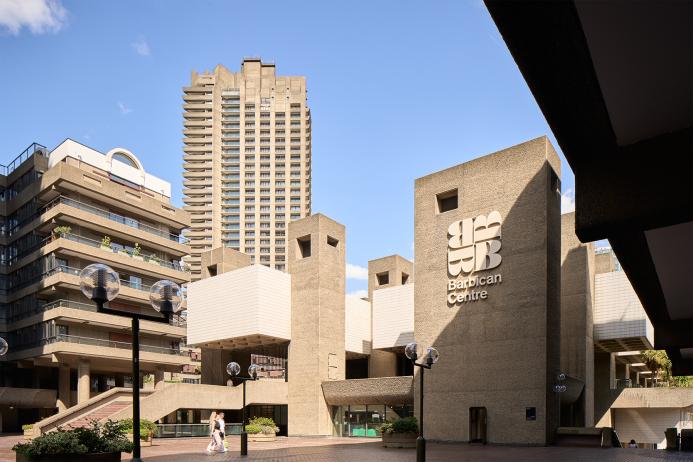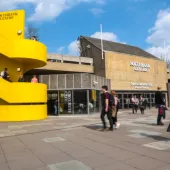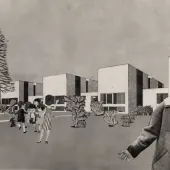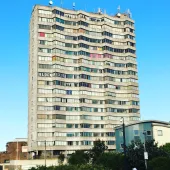Barbican plans renewal of iconic spaces
The Barbican Centre has revealed its initial plans to renovate key areas of its Grade II-listed site as part of its long-term renewal project. The proposals, which focus on the Foyers, Lakeside, and Conservatory, aim to improve accessibility, sustainability, and public engagement.
Opened in 1982, the Barbican was built on London’s largest post-war bombsite and is widely recognised as a landmark of brutalist architecture. However, after more than 40 years of continuous use, the building requires significant updates to remain functional and fit for the future.
The proposed plans include:
- Foyers: Restoring the original concrete design, improving lighting, upgrading accessibility, and repurposing underused spaces for flexible public and artistic use.
- Lakeside: Replacing paving to fix water leaks, upgrading fountains for passive cooling, adding greenery to boost biodiversity, and improving lighting and glazing for energy efficiency.
- Conservatory: Enhancing the planting scheme with dramatic architectural foliage, improving accessibility, and extending opening hours for public and event use.
Philippa Simpson, director of buildings and renewal at the Barbican, said: “The Barbican has always been about renewal, a beacon of an optimistic future in the wake of the Second World War. This project is rooted in the vision and ambition of its founders, to reimagine what an arts centre can be in the 21st century, a vital, creative space for everyone.”
The project team includes architects Allies and Morrison and Asif Khan Studio, engineers Buro Happold, and landscape designers Harris Bugg Studio.
Oliver Heywood, director at Allies and Morrison, said: “The Barbican is one of London’s most iconic spaces. Our goal is to honour the Centre’s original bold architectural legacy, while making it more inclusive, sustainable, and fit for the future.”
The next stage of the plans will be published in May 2025, with construction expected to start in 2027, subject to planning approval. The first phase should be completed by the Barbican’s 50th anniversary in 2032.
The City of London Corporation is contributing £191 million, covering 80% of the first five-year phase. A fundraising campaign will launch later this year to secure the remaining funds.







